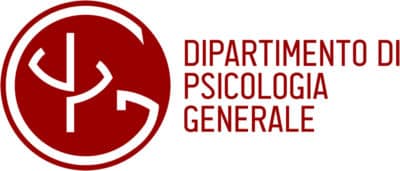
The Course as Learning Tutor provides theoretical and methodological tools on the learning aspects, and instruments to design the interventions to support and promote it, at different training levels and disciplinary fields.
The contents refer to the main theoretical and applicative models of cognitive psychology, metacognition, emotional-motivational and relational aspects within the learning field.
It is addressed to psychologists, doctors, teachers and other professional figures, interested in broadening their knowledge within the learning field.
The Course as Learning Tutor includes a training path divided into eight modules. The topics covered include:
- learning and cognition
- learning: motivation and emotions
- learning and metacognition
- learning issues and special educational needs
- life span learning
- learning: evaluation and improvement
- learning tutor, competencies and styles
- learning project included in the “Course program” below.
The Course as Learning Tutor is addressed to anyone interested in getting to know and exploring the topics of learning cognitive psychology and its applications in different educational contexts.
Access is reserved to holders of a Bachelor’s Degree of any address, or the Regional Nursing School or a Conservatory diploma.
At the end of the course, attendees will receive a Learning Tutor certificate, which can be used professionally in institutional fields (school, university, training centres), and in non-institutional ones (day-care centres, cultural centres). Moreover, the learning tutor figure can also be employed in corporate contexts (in companies of different nature and within hospitals).
The Course as Learning Tutor provides training on:
Module 1 – LEARNING AND COGNITION
It presents the main cognitive processes related to learning; such as: attention (how to select information), concentration (how to focus one’s resources), reading and understanding the material to be learned (decoding and meaning of the information), memory (memory system organization, memorizing strategies during the codification and recovery phase).
Module 2 – LEARNING MOTIVATION AND EMOTIONS
It presents the main constructs referred to learning-related motivation (such as entity-related and incremental beliefs, self-effectiveness and perception of competence); in addition, it presents the main models that relate (positive and negative) emotions to learning successes or failures.
Module 3 – LEARNING AND METACOGNITION
It presents the main multicomponent metacognition models that support learning. A good outcome of a task requires “knowledge” and the “ability to control” cognitive, emotional-motivational and strategic processes.
Module 4 – LEARNING ISSUES AND SPECIAL EDUCATIONAL NEEDS
It describes the main learning disorders and issues (dyslexia, comprehension disorders/issues, visual-spatial disorders/issues, dysgraphia, dyscalculia); also, it defines the Special Educational Needs in relation to the most recent regulations.
Module 5 – LIFE SPAN LEARNING
It resumes the topics covered in the previous modules, by focusing on the context of adult learning, in a life-span prospective, in relation to individual differences with specific cognitive, emotional, motivational and strategic aspects.
Module 6 – LEARNING: EVALUATION AND IMPROVEMENT
It covers the tools to assess cognitive abilities (objective study tests), and strategic, emotional and motivational aspects (surveys). Furthermore, it presents metacognitive intervention programs to support the different learning phases.
Module 7– LEARNING TUTOR COMPETENCIES AND STYLES
It analyses the functions, knowledge and competencies of a tutor, their activities (tutoring and tutorship), and how they relate to the recipients of the tutor activities. It presents the most functional criteria for the tutorship’s efficacy. Moreover, it analyses some of the basic concepts of communication.
Module 8 – LEARNING PROJECT
It analyses the theoretical-practical aspects of the learning project (need analysis, objective identification, resources, activities and intervention’s efficacy evaluation); it provides scheduling criteria based on the objectives and resources available.
It is a figure who works in learning contexts, with a various academic background (e.g. mathematics, liberal arts, psychology).
Moreover, it is a support figure who intervenes in those cases where the issues are due to a lack of strategy, organization and study method, they work on school materials, with specific focus on working times and methods, and share the work objectives with the doctor, the parents and the school.
The tutor’s competencies and functions are detailed in the following publication:
Zamperlin, C., Meneghetti, C. (2017). Il tutor dell’apprendimento: funzioni, competenze, conoscenze. Difficoltà di Apprendimento e Didattica Inclusiva, 4, 457-468.
A Learning Tutor can work in day-care or homework support centres, and come up with study strategies for children and adolescents. Indeed, the tutor’s figure can be placed in training/educational contexts, in institutional fields (school, university, training centres), and in non-institutional ones (day-care centres, cultural centres). Moreover, the learning tutor figure can also be employed in corporate contexts (in companies of different nature and within hospitals).
Lessons are mainly provided in asynchronous online mode. They are issued by providing an educational module every two weeks on the online platform (Moodle); the module comprises several downloadable documents (doc, pdf, etc.) that contain the materials for the specific unit, plus video-lessons recorded by the course’s professors. Moreover, the module entails practice/final tests that help evaluate attendance to the course. Video-lessons can be watched and the materials downloaded until the end of the course, without any time or connection duration constraints. Lastly, there will be only three in-person meetings, usually on Saturday (approximately one in November, at the beginning of the course, one mid-course in March, and a final one in July).
The general ranking of merit for the academic year 2025/26 will be published on the Italian page of this Master according to the timing provided in the Call.
Information
FAQ
There will be forms of facilitation for attendees with disabilities, PTA (technical-administrative staff of the University of Padua) and PA (public administration staff) employees. Also, the Teacher’s Card can be used.
The Course lasts one year, from November 2024 to July 2025.
Lessons are mainly provided online, in asynchronous mode, through the Moodle platform; specifically, an educational module will be provided every two weeks; the module comprises several downloadable documents (doc, pdf, etc.) that contain the materials for the specific unit, plus video-lessons recorded by the course’s professors. Materials and video-lessons can be watched for the entire course duration. There will also be some short practices/tests to be submitted before the two-week deadline. These activities certify attendance to the course. There will be three in-person meetings.
The final exam consists of a written test (in person) on the main theoretical or project topics covered during the course.
There will be no traineeship or final dissertation; however, during the last in-person meeting, a final exam on the main theoretical or project topics covered during the course will be held.
An attendance certificate, issued by the University of Padua, and 18 UFC (MPSI-01). Concerning the assignment of a score for school rankings, the recent Decree no. 60 of 10 July 2020 does not entail the allocation of a score to post-graduate courses, only to “post-graduate diplomas”.
For these reasons, the evaluation of a score assignment does not pertain to the University Administration, but rather to the School Administration, by submitting a specific recognition request.
No, but you can apply for membership to associations recognized locally and within the scientific community.

